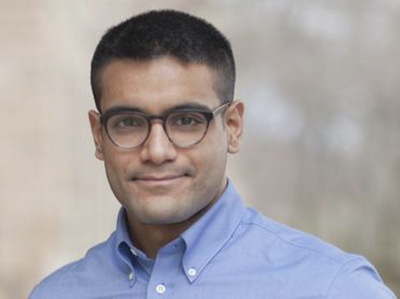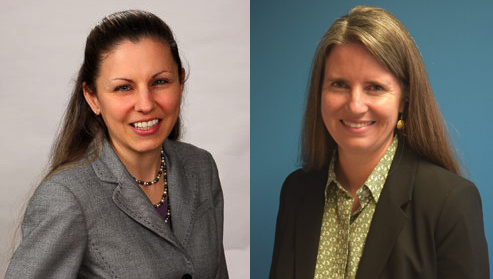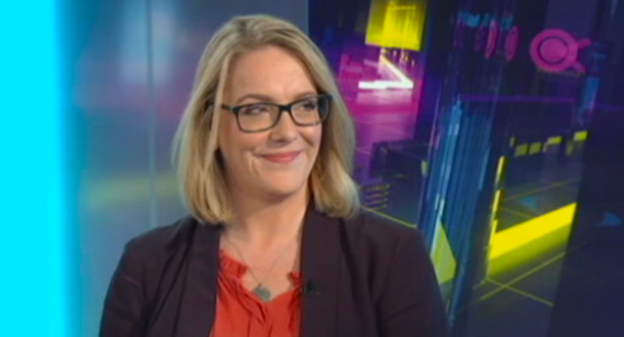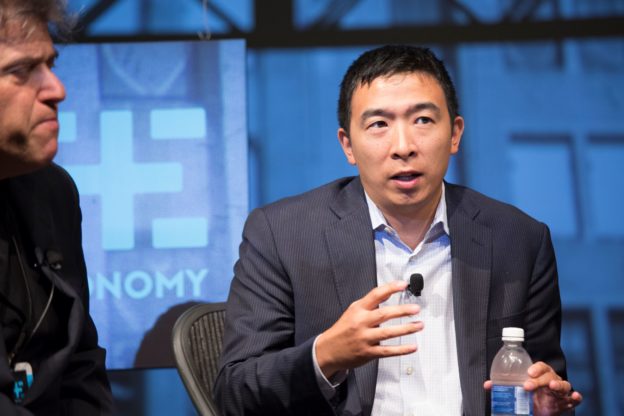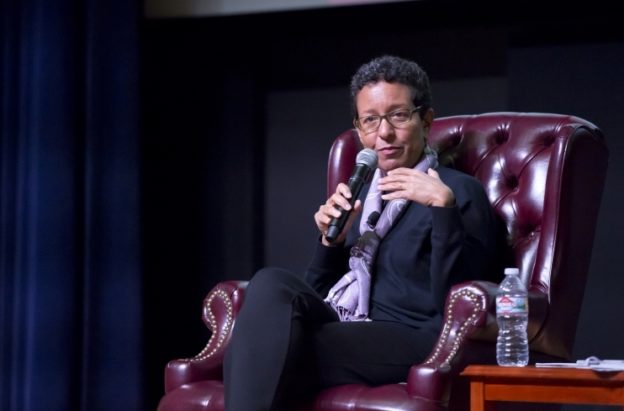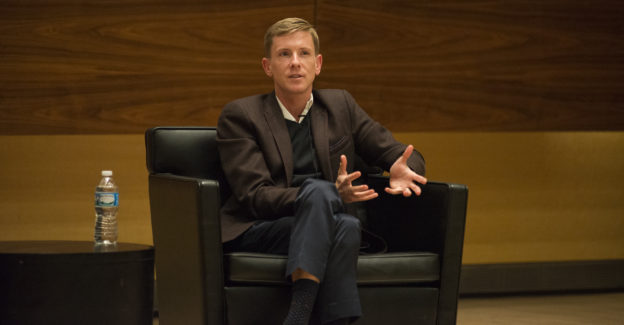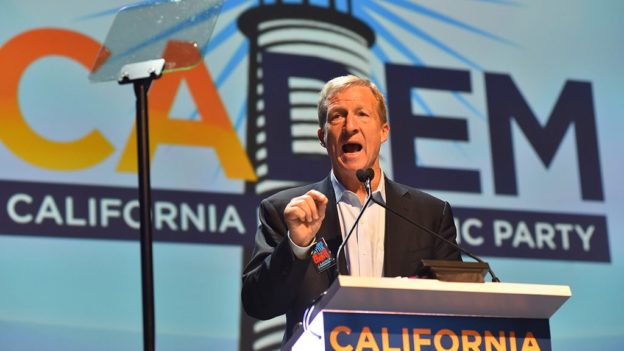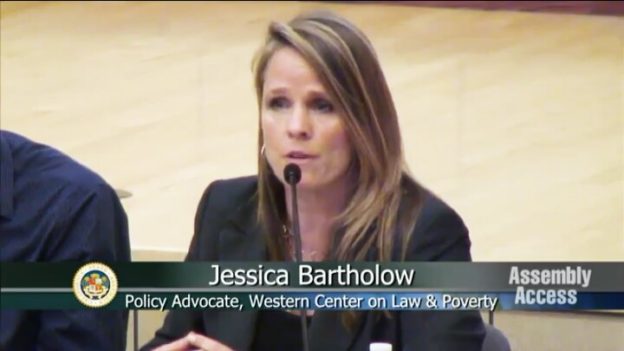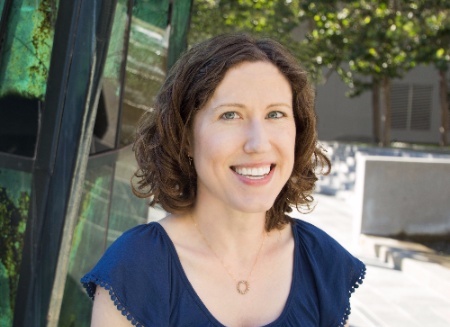
The basic income conversation is alive and well in India, particularly in the wake of an analysis conducted by the The Indian Ministry of Finance’s 2016–17 Economic Survey. Saksham Khosla, a Research Analyst at Carnegie India in New Delhi, discusses the Ministry of Finance’s proposal, and the various issues to be tackled in considering a basic income program for India. Khosla describes the unique challenges of creating a social safety net for a country of over 1.3 billion people.
——
Episode Transcript
Owen: Hello, and welcome to the Basic Income Podcast. I’m Owen Poindexter.
Jim: And I’m Jim Pugh. We’ve talked briefly in the past about some of the past research around cash transfers, and there’s been a fair amount of studies on that and, in particular, some basic income pilots that have taken place in India in the past. And there’s recently actually been quite a growing debate in the country on the policy, but we really haven’t had a chance to delve in on that topic until now
Owen: So here to help us do that is someone who spent a lot of time with these issues in India. So joining us is Saksham Khosla. He’s a Research Analyst at Carnegie India. Welcome to the podcast.
Saksham: Thanks so much, guys. Thanks for having me.
Owen: So, to start with, can you just tell us generally about your work on universal basic income?
Saksham: Yeah, absolutely. So my research on UBI has really started in the aftermath of the Indian Ministry of Finance’s proposal for an Indian universal basic income that came out in 2016. That particular report seemed to have set a firestorm of debate in India about how does some radical transformation of the welfare net can be implemented in India.
So after that report, I really became interested in figuring out how apt really is such an intervention for the Indian context and what might one think about when something like this have to be implemented at the scale and size and scope that is India. That really was the rationale for getting into a, discussing a UBI for me.
Jim: Now, you’ve written that there is an active debate around basic income in India. Can you tell us a bit about, what is the driving interest there behind the idea? Is it, in the US, oftentimes automation is brought up as a reason for people to become interested, and there are people who explore it for other reasons here as well, looking at the anti-poverty and equity value that the policy might bring. But I’m curious if you can give us some insights as to what’s actually causing people to pursue this policy there.
Saksham: Absolutely. Like in the US, the universal basic income is the not really a new idea for India. In the late 60s, there were debates happening within the Indian cabinet about whether a minimum income standard would be a useful policy intervention.
That debate seems to have subsided since then, but it seems to have picked back up starting around 2011 and 2012 when a couple of Indian Economist started thinking about whether there is an argument to be made for administrative efficiency. And that really is the big driving rationale for an Indian UBI. Can it outperformed our existing social safety net, which is one that is incredibly expensive? It’s sort of a patchwork of programs that takes place across the country in for a variety of different populations. And the thinking is, well, can one cash transfer, something that suffices for a household and is enough to cover their basic need and that’s delivered directly into people’s bank account, can that really outperform some of the more complicated welfare arrangements that we have in this country?
And since then, that debate is really been picked up by lots of economists, scholars, researchers, activists, and that has finally culminated in the economic service report that came out a few years ago.
Owen: So we’ve spoken in recent episodes about the importance of understanding the context of a country’s social benefit system before we, you know, throw in a UBI. So if you could just help us understand India’s current anti-poverty programs and other social programs, that would be really helpful.
Saksham: Yeah. So the poverty alleviation strategy has really comprised three basic prongs. First off, obviously, economic growth. Second is public services like healthcare, education, sanitation and so forth. And the third, in which particularly the Indian state has invested heavily since the 2000s is social protection. And this involves transfers of varying kinds, subsidies. And these can broadly be broken down into two basic tents.
The first is obviously services that are rendered for individuals who are in the formula sector. So whether you’re a government employee, whether you’re employed by an organization, pays taxes, and has its employees on a formal payroll. But these, the formal sector really comprises a minority of India’s labor force. A little less than 10 percent of the entire working population falls within the formal sector. India welfare architecture really kicks in and comes to life for the remaining 90 percent of the workforce, those who are in informal organizations. They’re off the books, they’re self employed, they’re primarily involved in agriculture.
And here, the Indian state has a variety of programs. The first broadly are programs that are more or less transfers. These involve India’s flagship fuel, fertilizer, and food subsidies. There are India’s public works program called the Mahatma Gandhi National Rural Employment Guarantee Program, which is the world’s largest public works program. And then you have a series of insurance programs as well as the national social assistance program, which is basically a combination of pensions, which is given to the elderly, those who are disabled, widows, and so on and so forth.
So that is the broad generalization about India’s social safety net. Some of these, mostly, they are in-kind, but there are a few cash transfers in there as well.
Jim: Now, India currently has over 1.3 billion people living in the country. Can you talk about how does the massive size of the population affect how to country administers social benefit programs?
Saksham: That’s a really good question. I think the way the country has figured out how to administer the variety of programs is to essentially leave the central government in charge of the biggest and most expensive of these programs and then work alongside state government as well as local governments to decentralized some of those work and have them do a little bit of the heavy lifting. So while the funds may actually be coming from the central government, a lot of the day to day implementation is actually done by state governments with district administrations.
Now, of course, a lot of individuals fall through these cracks, just given the size and complexity of India, but that is the general thinking behind well, how does one go about addressing such a population?
Owen: So now getting into your analysis of the UBI proposal by the Indian Ministry of Finance’s economic survey: could you describe the proposal and also share your views on its, what you see as its shortcomings?
Saksham: The proposal, the big headline findings from the proposal are basically along the following lines. I definitely do recommend checking out the entire chapter in its entirety. But the big takeaways from the Ministry of Finance’s chapter was that a transfer of Rupees 7,000, which comes out to about 110 dollars annually, would bring down poverty from the existing poverty rate, about 22%, to a poverty rate of about 0.5%, if that transfer was given to 75 percent of India’s population.
So it’s important to know that this is not a fully universal transfer. The economic comes out and says that completely ensuring coverage of the entire population would be something that would be too fiscally costly, and possibly even politically costly as well. So it advocates for a 75% coverage rate, and it suggests various ways of excluding the remaining 25%, whether by targeting certain populations, rolling it out sequentially, possibly even targeting different geographies of the country and then taking it up to a larger scale.
The cost that the economic survey puts for such a transfer to a population of that size is about 5% of GDP. This is a fairly high, fairly costly estimate, and the survey comes out and says that this isn’t something that can be an add-on to existing programs. So all the programs that I talked about earlier like the public works program, the public distribution system, which is to ensure food security in the country, and a variety of other large welfare schemes would essentially have to be rolled back or dismantled to make place for a UBI, for a quasi-UBI as the survey calls it, of this magnitude.
So after looking at how the survey goes about putting together this estimate, and the implementation of a UBI, I had the following thought to evaluate this proposal. First of all, it is not really a universal basic income, obviously it’s for 75% of India, not the full population. So there is going to be targeting still retained as a big part of the program.
Now the service says that it wants to exclude the rich rather than target out, target the poor. But that still seems to me at least leaving the door open to a series of inefficient means-testing mechanism, or even other targeting techniques that may not work as easily in practice as they would in theory.
Looking into the various ways of calculating the transfer, the annual transfer of about $100 per year, it’s a fairly low payout because it’s based on a lower poverty line than alternative poverty lines that are available in India. And it’s not a true poverty line transfer as well. It’s essentially a cash transfer that is supposed to push people over the party line.
If you were to actually calculates the cost of giving folks in India a poverty line transfer, that would come to about 10 to 12 percent of GDP, rather than the 5% the survey puts forth. And that’s actually more than the entire central government’s revenue in the path. So we can see already that the the size and population of India is a big constraint on pulling off an ineffective UBI.
So the final part of the puzzle is, well, how do you actually send folks the transfer? The survey puts a lot of stock in India’s national biometric identification system, called Aadhaar. And the government’s push for universal financial inclusion. The survey actually comes and says that these two pieces are essential to have in place before one can think about having a universal transfer deposited directly into people’s bank account.
I completely agree with that estimate. I think it’s fairly early in our financial inclusion system to think about transmitting such a transfer effectively. There have been a series of evaluations by scholars, activists, and journalist of cash transfer experiment that are currently being undertaken in relatively urban parts of India where the food security program, the food that one would ordinary get down to the program, people are being given cash instead of that. A series of evaluations have found that for a variety of reasons, whether last mile delivery, the actual amount of the cash, the cost that people have to bear in receiving the transfer then going and spending it in the open market, actually have created significant concern for these populations. So in parts of the country where things like the PDF and other welfare schemes are function fairly effectively, the preference for cash transfers actually fairly low.
And we can see that the series of implementation problems the current government is facing with implementing cash transfer as indicative of just how far we have left to go before we can think about universal or even quasi- universal cash transfer across the country. So a UBI, for all it’s worth in theory, actually radically changes when one thinks about translating it into policy and action.
Jim: You mentioned challenges with “last mile” on this new cash transfer approach. Can you elaborate what those issues are?
Saksham: Yeah, absolutely. So the pilot evaluations of what are called “direct benefit transfers” have essentially found that, and these have been a series of evaluations that have been going on by organizations like JFL in coordination with the Food Ministry. And they’ve essentially found that the size of the subsidy, in particular, has not been enough for individuals getting the transfer to compensate for their typical consumption expenditure.
In addition, the combination of cash transfer with the biometric identification program has complicated things significantly. What that means is that when an individual goes to get this cash transfer, they must authenticate their fingerprints to receive that transfer, and their fingerprints are essentially recorded within the nation’s biometric identification program.
And across rural India, authentication failure are an incredibly big reason why people have been unable to receive their payments. That has resulted in massive exclusion errors where people who would have otherwise been able to receive their food rations, simply by demonstrating their ID card to the person actually giving out this grain, have been systematically denied their cash transfer. So authentication failures and exclusion errors that have resulted as a part of the Aadhaar program, just the biometric program, have been a significant obstacle in receiving this transfer.
Over and above that, actually going and spending this money in the open market has been something that incurs high private cost because one has to take out the time to actually go and receive the transfer, go and spend it out on the open market, because of all these reasons, there’s a lot of progress that needs to be made before large-scale Aadhaar-linked cash transfers can be actually trusted to fully reached recipients.
Owen: That’s very interesting. So universal basic income has a lot of principles embedded in it, such as universality and unconditionally. Even if a full UBI may or may not be right for India, what principles from the overall concept do you think would be useful in implementing and changing India’s social benefit programs?
Saksham: So I think something that has benefited several state governments, and even the central government in their implementation of existing welfare programs, and I’m thinking particularly of the public distribution system and security, has been to universalized coverage and reduce the number of eligibility criteria or bureaucratic hoops a beneficiary has to jump through to receive that transfer.
So several Southern and Central, even Eastern Indian states have found that when they implemented reforms that make it eash for a vast proportion of the beneficiary population to receive the transfer with relatively little bureaucratic middlemen, that actually has helped reduce leakage, reduce corruption, reduce the chance of transfers of being diverted from beneficiaries.
So a big reason why the administrative efficiency argument is made in favor of a UBI, that argument loses a certain part of its salience when one considers the progress that India’s existing welfare schemes have made to reform themselves just by implementing the principles of universality, and to a certain extent, unconditional as well. One thing that I actually think, and this is something several scholars in India has put forth, could be a stepping stone potentially to a UBI, is to universalize existing social pensions among folks that are elderly, the widows, and people who are disabled, because these are vulnerable populations. They’re easily identifiable, and a series of evaluations and studies over the past decade have found that this is a program that works particularly well relative to other schemes.
So if one were to universalize payments, and social pensions in particular, I think that would be a very useful way to combine the central tenet of UBI, which involves cash given to a universal population with as little bureaucratic intervention as possible.
Jim: So delving more into the politics around this: can you give us a sense for what is the current conversation around basic income and similar policies in India right now? Where does there seem to be momentum for actually pushing forward real change?
Saksham: I think the conversation for UBI, at least politically, seems to have hit a pretty significant roadblock immediately after the proposal was submitted by the Indian Chief Economic Advisor’s office. The chief, the country’s Finance Minister pretty much came out and said that the country’s finances cannot handle a UBI at this point in time and that it would be easy to implement, but very hard to roll back. So I think there is a fair amount of political doubt, I think, about the feasibility and the need for such a program at this point in time.
But I think that there is certain cause for optimism, if not from the central government, but from the state government. So several Indian states are actually contemplating whether it would be easier and more feasible to convert several of that existing benefits Into cash transfers, combine that cash transfer, and transmit that to their beneficiiaries.
Now, obviously, there are a couple of dangers here. One has to be careful that this isn’t a program that Happens only in India’s most effective states administratively, and states that, rather than states that actually need this sort of intervention. And that under the guise of a UBI, this isn’t an excuse to sort of step back from the state’s obligations to its citizens and convert programs that would be relatively high functioning into relatively meager cash transfers. I think that’s a big risk.
So I think the conversation right now, at least politically, on a UBI seems to be at a bit of a standstill. But I don’t think that that should be cause for pessimism. Several folks have recommended that coalition of workers unions, whether they are informal workers or workers in formal sector, could come together to agitate for a UBI. In fact, several of the UBI experiments in India have been conducted with the help of the Self Employed Women’s Association, which is a group of women running small businesses for whom this policy seems to have great potential. So I think that is where the political discussion is at.
It’s also hindered because we really don’t know what the final form of a UBI will be in India. The economic survey proposal is just that, it’s one proposal. But we don’t know whether a central state government would go about actually implementing it. Would it involve a higher amount of taxes? Would it involve actually dismantling existing schemes, in which a brave government would have to contend with the beneficiaries of that scheme, and therefore the political ire, as it were. So I think that’s where political discussion is at.
Owen: So, given the uncertainty both around the politics and also about what is the right way forward, what do you see as the next steps for basic income in India?
Saksham: Well, I think for both a UBI, folks that support UBI, and those that criticize the the applicability of such a program, the only way this discussion can move productively forward is, I think, through a state-administered basic income experiment. And I want to emphasize the part that this should be, something should be administered by a state government or a collection of state government, potentially even by the central government. Because rather than the discussion that’s happening in the US or in certain parts of Europe, the key constraint to implementing a basic income in India is state capacity, and whether the Indian state implements it in such a fashion that is more effective or can outperform existing schemes. The relative benefit or merits of the idea quickly lose any of their relevance if what we get in its place is a program that leaks, that has a high chance of encouraging corruption, and that may even come at the cost of schemes that do actually deliver their benefit to these citizens.
So I think a basic income trial, ideally something that is longer than five years to resist electoral pressure and to give us long-term cash transfer effect, is incredibly important for this debate. And if we can get this done with the participation of an external agency that has high amounts of experience evaluating large randomized control trials or other forms of welfare evaluations, that would be an ideal way to figure out, well, is this really something that fits neatly within the welfare contact and if it’s something that is worth investing resources, time, and even political will behind.
Jim: That was Saksham Khosla, a Research Analyst with Carnegie India.
Owen: So, I found it very interesting when he described the problems of implementation of cash transfers. It felt like the reverse, at least in the US and a lot of other countries, where usually if you’re delivering stuff or some kind of non-cash benefits, that’s much harder than delivering cash. There’s a lot of transfer issues, whereas cash is just instant and easy. Whereas, you know, as he described, that’s not really the case in India.
Jim: Yeah. I think this was a great example of understanding the key differences that will ultimately lead to different right solutions in different countries. And that recognizing that it seems like there, I mean he talked about leaks and corruption in the process. And so they have systems they’ve developed over time that are, at least it seems currently, somewhat resistant to that, and if you’re talking about something new, that “last mile” piece may actually be a huge challenge. And so whether you use cash instead of specific in-kind goods, any sort of new approach, and also the amount of security you need to include with it in order to try to prevent that, those all create additional barriers that you don’t necessarily think about at first blush.
Owen: Yeah, and like you said, I think it shows the importance of experiments and trials just because there’s always going to be something that you’re not thinking of when you actually lay it out. I feel like a lot of us advocates can kind of get frustrated because we feel like we know this works, that we should just do it, but you learn so much through all the trials that we’ve done and especially in a context that at least we’re not particularly familiar with.
Jim: And we talked about this in the episode earlier this year with Elizabeth Rhodes, but for the Y Combinator experiment, the first thing they did wasn’t to run the experiment. The first thing was to do a very small pilot just to understand logistics.
So even here in the US, people recognize that once you actually, once the rubber hits the road, and you’re actually talking about real programs, it’s so important that you really dig in and understand, what are the logistical challenges? How, are there ways that this may have unintended consequences or break down at points that we might not think about in a top-level economic analysis?
Owen: Yeah, and speaking of economic analyses, I always find it interesting what conditions people choose to set when they’re creating these analyses. You know, he described one where it’s 75% of the population, which it’s kind of daunting to think about how that remaining 25% is like the population of the United States. But, you know, that’s one way to do it.
We spoke to the team in Washington DC who looked at a basic income at the poverty level and 4 and 1/2 times the poverty level. And I just find it interesting the sorts of choices that people make when they’re modeling this out, and I feel like, you know, that’s something where it’s a lot cheaper to do an economic analysis, but we could still use a lot more of those to just get a feel for what different programs might look like.
Jim: Getting more movement on all fronts. The more, the better we understand this, the more informed and deep debates we can have, the better for moving things forward.
Owen: Yeah, absolutely. Thank you for listening to the Basic Income Podcast. Thank you to our producer Erick Davidson. Please subscribe on the podcast service of your choice and leave us a rating or review. And please tell your friends to bring more people into this conversation. See you next week.
